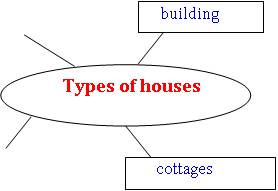Giáo án Tiếng Anh 6 Global Success Unit 10 Getting Started
Giáo án Tiếng Anh 6 Global Success Unit 10 Getting Started
Chỉ từ 300k mua trọn bộ Kế hoạch bài dạy (KHBD) hay Giáo án Tiếng Anh 6 Global Success bản word phong cách hiện đại, trình bày đẹp mắt, dễ dàng chỉnh sửa:
- B1: gửi phí vào tk:
1133836868- CT TNHH DAU TU VA DV GD VIETJACK - Ngân hàng MB (QR) - B2: Nhắn tin tới Zalo VietJack Official - nhấn vào đây để thông báo và nhận đề thi
THIS UNIT INCLUDES:
|
Vocabulary - Types of houses and appliances in the house Pronunciation: - Stress in two-syllable words. Grammar - Future simple. - Might for future possibility |
Skills: - Reading about houses and appliances in the future - Talking about different houses in the future. - Listening to about dream houses - Writing a paragraph about dream house Everyday English Expressing surprise |
I. OBJECTIVES:
* By the end of this unit, students will be able to:
- use the words related to types of houses and appliances in the house;
- pronounce the two-syllable words correctly;
- use future simple and might for future possibility; expressing surprise;
- read for specific information about houses and appliances in the future;
- talk about different houses in the future;
- listen for specific information about dream houses;
- write a paragraph about a dream house.
1. Knowledge:
- To introduce topic of the lesson houses and appliances in the house. To teach listening and reading about future house.
+ Vocabulary: Using the words related to types of houses and appliances in the house;
- Stress in the two-syllable words;
+ Grammar: - The usage of future simple and might for future possibility; expressing surprise;
2. Competence: By the end of the lesson students will be able to pratice reading and listening the conversation between Nick and Phong about Phong’s house in the future.
3. Quality/ behavior : The love of their own houses and appliances in the house. Having serious attitude to imagining the houses in the future ; Having serious attitude to working in groups, individual work, cooperative learning and working.
II. TEACHING AIDS:
- Teacher: Text book, laptop, louspeaker, projector…
- Students : Text books, studying equipments….
- Work Arrangements: T_Ss , group works; individual ……
III. PROCEDURE:
I. WARM UP & INTRODUCTION (5’) | |
|
Aims: - To create an active atmosphere in the class before the lesson; - To lead into the new unit. * Content: Review the previous lesson . Brainstorm the types of houses . * Outcome: Having a chance to speak English and focus on the topic of the lesson.. * Organisation :Teacher’s instructions… | |
Teacher’s & Student’s activities |
Content |
|
+ Greeting + Brainstorming - Teacher (T) asks Ss some questions about the previous lessons, - T may introduce some warm-up activities to creat a friendly and relaxed atmostphere to inspire Ss to warm up to the subject and new class… - T encourages Ss to brainstorm the types of houses they have known. Elicit from Ss. + Lead to the first unit of the new school year. - Write the title of the unit Houses in the Future on the board. Have Ss say something about the houses they are living in and the furniture or appliances they have got. - Tell them to think about the houses and appliances they want in the future. |
+ Greeting + T_ Ss - (Ss) listen and learn how to do it . - Open their book and write . |
2. PRESENTATION (12’) | |
|
ACTIVITY 1: Aims: - To set the context for the introductory text; - To introduce the topic of the unit. * Content: Listen and read conversation to get used to the vocabulary; new grammar points. * Outcome: Reading practice. Finding out new words; Ss soon become familiar with thenew language items. * Organisation : Teacher’s instructions… | |
|
1. Listen and read. T_ Ss *) Pre- teach vocabulary: - Teacher uses different techniques to teach vocabulary (situation, realia, translation .....) + Teacher may introduce the vocabulary by: - providing explanations of the words; - showing picture illustrating the word. + Follow the steps to teach vocabulary - Repeat in chorus and individually + Check vocabulary * Have Ss look at the picture. Have them answer some questions, e.g. Who are they? What is Phong doing? What are they talking about? - Focus on some main information about the conversation (They are Phong and Nick. Phong is painting a UFO. They are talking about Phong's house in the future.). - Play the recording for Ss to listen to the whole conversation once. - Play the recording again, sentence by sentence, for them to listen and repeat. Have them listen and repeat the conversation more than once, if necessary, until they feel confident. - Have Ss read the conversation in pairs. - Draw Ss' attention to the uses of will (for future) and might (for future possibility) by underlining the sentences with will and might. - Go around and offer help if necessary. - Get some pairs to read the conversation in front of the class. - Check their pronunciation, if necessary. |
1. Listen and read. * Vocabulary - UFO (Unidentified Flying Object) - solar energy (n) năng lượng măt trời - appliance (n) thiết bị - smart (adj) thông minh - ocean (n) đại dương - beach (n) biển - sky (n)bầu trời * Answer the teacher’s questions. - Find out the words related to the topic. - Complete the tasks |
3. PRACTICE (18’) | |
|
ACTIVITY 2: Aim: To help Ss understand the conversation. * Content: Read again the conversation write down the words or phrases. * Outcome: Ss get more information and undertand more the conversation. * Organisation : Teacher’s instructions… | |
|
2. Read the conversation again. Find and write down the words or phrases… - Write on the board Type of house, Location and Appliances in the house. Explain the meaning of the words: type, location and appliances. Have them listen and repeat the words several times. - Work in groups, have Ss read the conversation again and find the words or phrases to show type of the house, the location of the house and its appliances. Then have some Ss say the words and phrases in front ofthe class. Explain UFO (Unidentified Flying Object) if Ss do not know. If there is enough time, ask one student to go to the board and write the words / phrases. - Check the answers as a class. |
2. Read the conversation again. Find and write down the words or phrases… - T_ Ss - Follow the teacher’s instructions - Give the answers and check. * Key: - Type of house: UFO - Location: in the mountains - Appliances in the house: some smart TVs and ten robots |
................................
................................
................................
Trên đây tóm tắt một số nội dung có trong bộ Giáo án Tiếng Anh 6 mới nhất, để mua tài liệu đầy đủ, Thầy/Cô vui lòng xem thử:
Xem thêm các bài soạn Giáo án Tiếng Anh lớp 6 Global Success (bộ sách Kết nối tri thức) chuẩn khác:
Tủ sách VIETJACK shopee lớp 6-8 (2025):
Đã có app VietJack trên điện thoại, giải bài tập SGK, SBT Soạn văn, Văn mẫu, Thi online, Bài giảng....miễn phí. Tải ngay ứng dụng trên Android và iOS.
Theo dõi chúng tôi miễn phí trên mạng xã hội facebook và youtube:Loạt bài Giáo án Tiếng Anh lớp 6 chuẩn nhất của chúng tôi được biên soạn bám sát mẫu giáo án chuẩn của Bộ GD & ĐT.
Nếu thấy hay, hãy động viên và chia sẻ nhé! Các bình luận không phù hợp với nội quy bình luận trang web sẽ bị cấm bình luận vĩnh viễn.
- Giáo án lớp 6 (các môn học)
- Giáo án điện tử lớp 6 (các môn học)
- Giáo án Ngữ văn 6
- Giáo án Toán 6
- Giáo án Tiếng Anh 6
- Giáo án Khoa học tự nhiên 6
- Giáo án Lịch Sử 6
- Giáo án Địa Lí 6
- Giáo án GDCD 6
- Giáo án Tin học 6
- Giáo án Công nghệ 6
- Giáo án HĐTN 6
- Giáo án Âm nhạc 6
- Giáo án Vật Lí 6
- Giáo án Sinh học 6
- Đề thi lớp 6 (các môn học)
- Đề thi Toán 6 (có đáp án)
- Đề cương ôn tập Toán lớp 6
- Chuyên đề dạy thêm Toán 6 năm 2024 (có lời giải)
- Đề thi Ngữ Văn 6 (có đáp án)
- Chuyên đề Tiếng Việt lớp 6
- Bộ Đề thi Tiếng Anh 6 (có đáp án)
- Bộ Đề thi Khoa học tự nhiên 6 (có đáp án)
- Đề thi Lịch Sử & Địa Lí 6 (có đáp án)
- Đề thi Địa Lí 6 (có đáp án)
- Đề thi Lịch Sử 6 (có đáp án)
- Đề thi GDCD 6 (có đáp án)
- Đề thi Tin học 6 (có đáp án)
- Đề thi Công nghệ 6 (có đáp án)
- Đề thi Toán Kangaroo cấp độ 3 (Lớp 5, 6)







 Giải bài tập SGK & SBT
Giải bài tập SGK & SBT
 Tài liệu giáo viên
Tài liệu giáo viên
 Sách
Sách
 Khóa học
Khóa học
 Thi online
Thi online
 Hỏi đáp
Hỏi đáp

